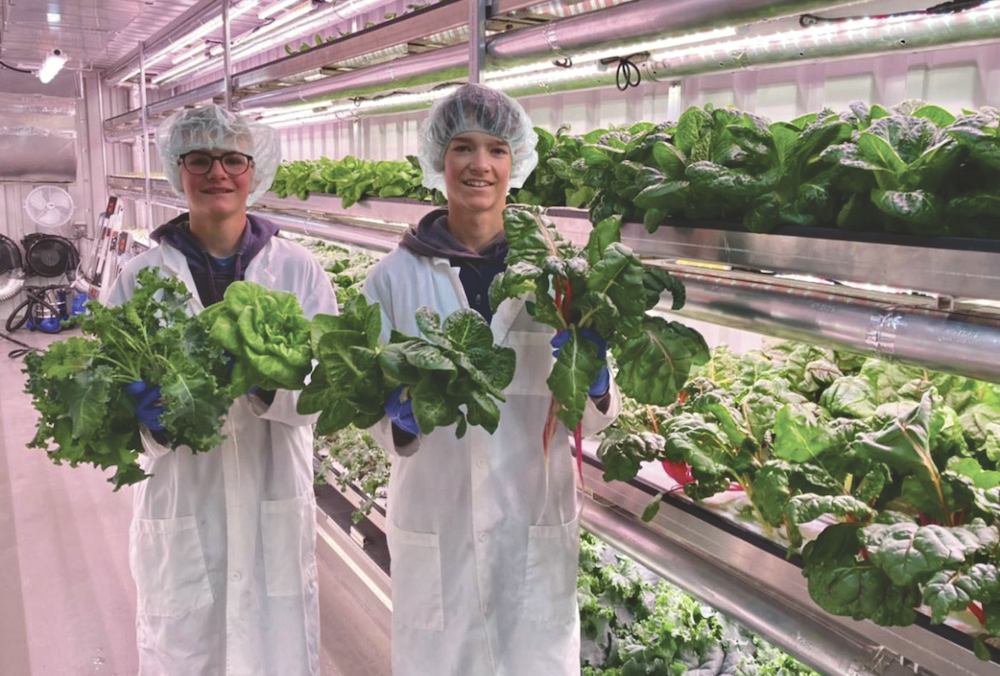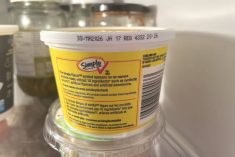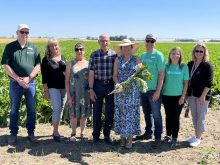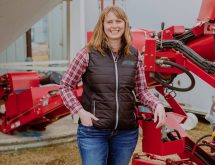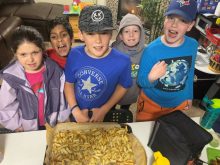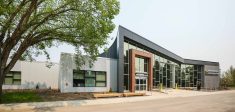It started as a small tulip garden but has grown into a vibrant student-led farm that now entices kids to a once-struggling school in the tiny village of Altario.
“This school gives us the opportunity to do things that we never thought we would do,” said Jessica Vert, a recently graduated Grade 9 student who runs the Facebook page for the Altario Agriculture Academy.
“It put us on the map and improves our learning. More kids are coming to the school because of this, and more kids are learning about it and what we’re all about.”
Read Also
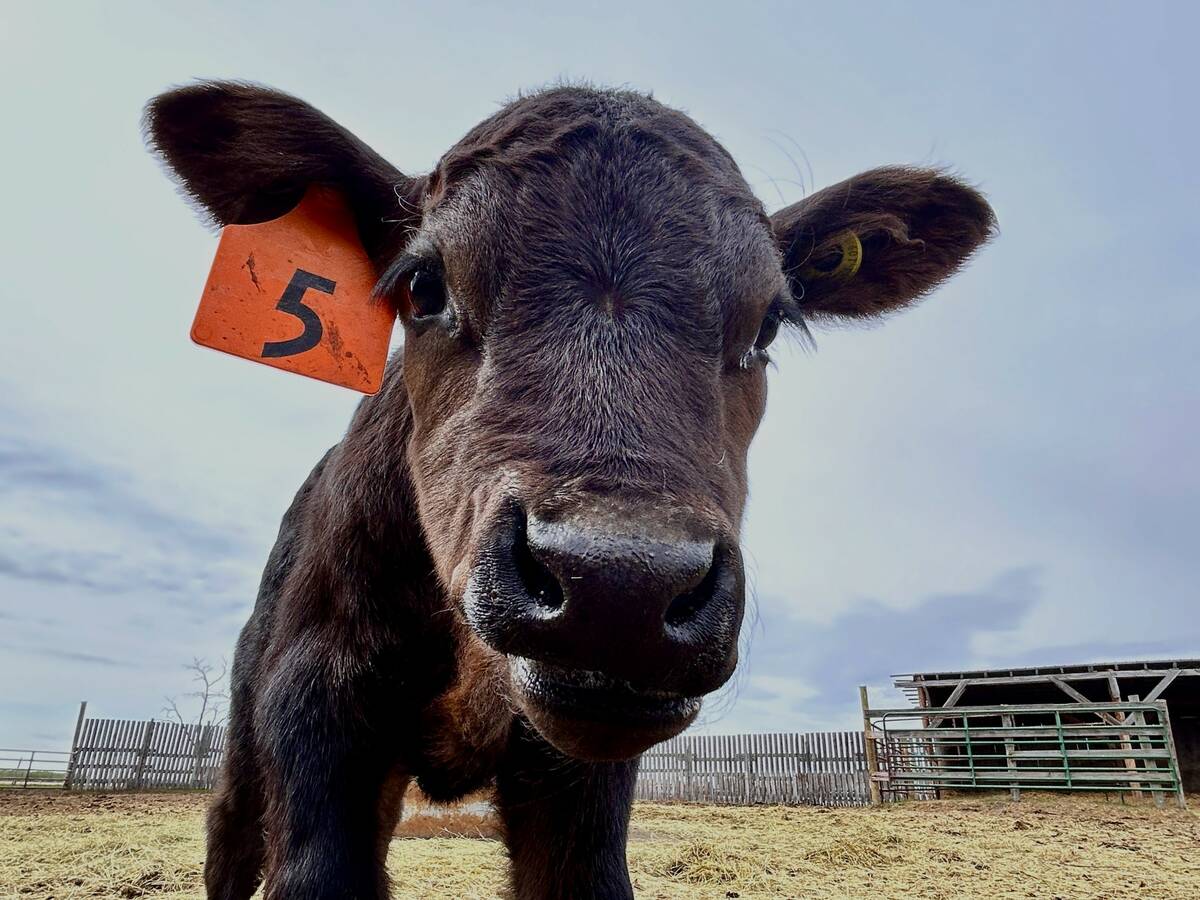
Calf vaccination timing: why one size doesn’t fit all
Experts say for calf vaccinations to be most effective, it requires using a tailored approach for each herd.
The idea was born one day when Kevin Van Langen was talking to students who all planned to attend the same college to take an agriculture program. He is the principal of both Altario School near the Saskatchewan border and Consort School, 50 kilometres to the west.
“We realized that we needed to expand their understandings of opportunities in agriculture,” he said. “We talked about it for a while as staff. We came together as a community and said, ‘We do agriculture really well, let’s embrace it and let’s do something really special with it.’”
Along with the small garden, they planned agriculture theme days and eventually decided to raise some steers.
“That was kind of when things started to take off,” said Van Langen.

In spring 2019, the school auctioned one of its steers — nine times — and raised $39,585. The school division had purchased a barn for the school, so with the extra money, they built pastures and began to acquire animals.
“The farm started in an old outdoor skating rink, and it’s about triple the size of that now,” said Van Langen.
Since its founding, the project has transitioned into a student-led farm, and now there are students managing pigs, cows, chickens, quail, turkey and sheep. The Grade 7 to 12 students are in leadership roles, but every child is involved with the farm. Students can also take on other roles and learn business skills such as accounting.
“We’re giving kids an opportunity to do things at the junior and senior high level before they go to post-secondary and spend thousands and thousands on a program and realize they aren’t that interested in it,” said Van Langen.
This year the school acquired a Growcer — an indoor farm housed in a shipping container — that can supply fresh produce year-round for 150 families.
“We have grown lots of leafy plants like lettuce and kale, and some plants I had never heard of, like bok choy,” said Vert, who was in Grade 5 when the farm started and has served as sheep manager and worked in the barn.
She also works in The Hive, a store the school opened this year, which is (of course) run by the students. In addition to selling produce and eggs, The Hive has become a community hub.
“The Ukrainian ladies who have immigrated here, they sell baking,” said Vert. “There’s a group that makes perogies and cabbage rolls. They put them in the store and we sell them for them and they get their profits from it.”
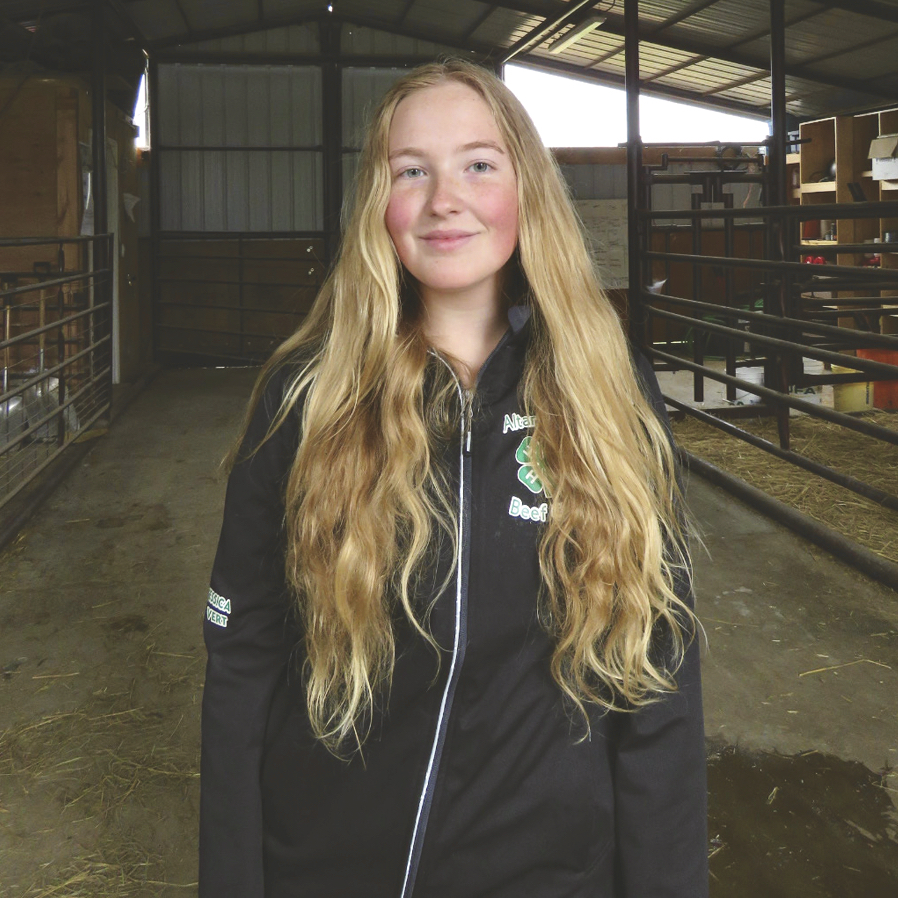
The multiple initiatives that are part of the Altario Agriculture Academy have changed the dynamic in the school and community, said Van Langen.
“Students love the responsibility and love the interaction and love to do things a little differently at school. And love coming to school because they have this responsibility outside of the classroom,” he said. “The community loves the viability of the project and how exciting it is for the students, the school, and the community.”
And they’re not just watching from a distance.
“For every part of our farm, we have a community mentor who has expertise,” said Van Langen. “We have veterinarians and professors come in, and experts in seed and feed. The agriculture industry loves this kind of stuff, so they are extremely supportive.”
Prior to the farm initiative, it was projected the school’s enrolment would shrink to only 33 students by this year. Instead, it stands at twice that number, with new students coming from outside the immediate area.
The turnaround has not gone unnoticed.
“Over the years, a lot of our rural schools get smaller and smaller, so a small school turning things around and doing more and starting to grow is really great for the community,” said Van Langen.
“We probably give a tour every other week to schools in Alberta or Saskatchewan. There are several schools in Alberta that have kind of started doing what we are doing here.”
The list of schools with their own agriculture programs now includes the Irvine Agriculture Discovery Centre and the New Humble Community School in Calmar, as well as other schools in Round Hill and Mountain View County.
Van Langen has also revitalized the Consort School by starting a baseball program.
He has a few words of wisdom for people looking to revitalize rural schools.
“Embrace your local identity and lean on local expertise,” he said. “Don’t try to be something you’re not, because it’s not going to work.
“When you build a program based solely on staff, staff leave. The community doesn’t. You build the program based on the community.”


